On my recent trip to Southern California, I was able to sneak in two separate visits to the Huntington in San Marino, one of California’s great estates. Established by businessman Henry Huntington in the early 1900s on what was originally a 600-acre ranch, the 207-acre property comprises a world-class library, art collections and 16 themed gardens spread out over 130 acres.
The main attraction for me, needless to say, is the Desert Garden. Started in 1907 by garden superintendent William Hertrich, it now encompasses 10 acres—60 landscaped beds filled with more than 5,000 species of desert plants from both the Old and the New World. Immaculately curated and maintained, it’s considered of one the best succulent gardens in the world.
I’ve been to the Huntington many times before (see list of previous posts), but usually in the morning or in the middle of the day. This time, I visited later in the day. As you can see from the photos below, the late afternoon sun bathed the plants in rich, warm light. The backlit cacti were especially stunning. I feel lucky I had the opportunity to experience all this beauty up close, and I hope I’ll be able to share some of the magic through these images.
 |
| Aloidendron barberae |
 |
| Agave attenuata ‘Boutin Blue’ growing under the canopy of Aloidendron barberae |
 |
| White-flowering floss silk tree (Ceiba insignis) |
 |
| Aloidendron ‘Hercules’ (A. barberae × dichotomum) |
 |
Stapelia hirsuta
|
 |
| Calliandra californica and columnar cacti |
 |
| Cascalote (Caesalpinia cacalaco) has the most interesting trunk. The protrusions are corky tubercles tipped by sharp prickles, all designed to prevent nibbling by hungry predators. |
 |
| Walking down the New World section of the Desert Garden |
 |
| Echinocactus grusonii on the left, Mammillaria compressa on the right |
 |
| Mammillaria compressa |
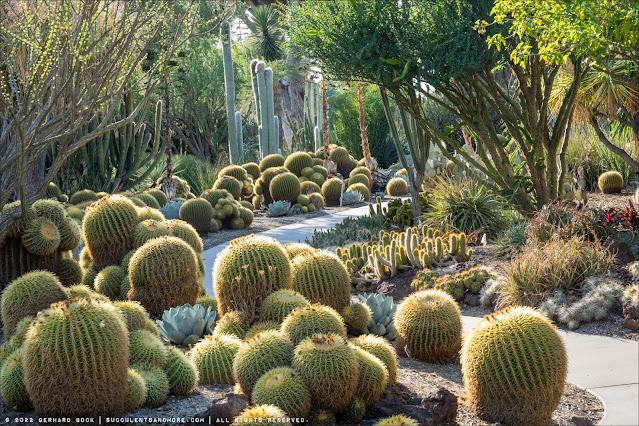 |
| Golden barrel wonderland |
 |
| Echinocactus grusonii |
 |
| Sorry, no clue what this beautifully backlit cactus is |
 |
| Pops of red from aechmeas |
 |
| Tall flower stalks from Agave parryi var. truncata |
And a few more golden barrels and Agave parryi var. truncata, just because they’re so easy on the eyes:
More late-afternoon photos from the Huntington Desert Garden in part 2!
© Gerhard Bock, 2022. All rights reserved. To receive all new posts by email, please subscribe here.






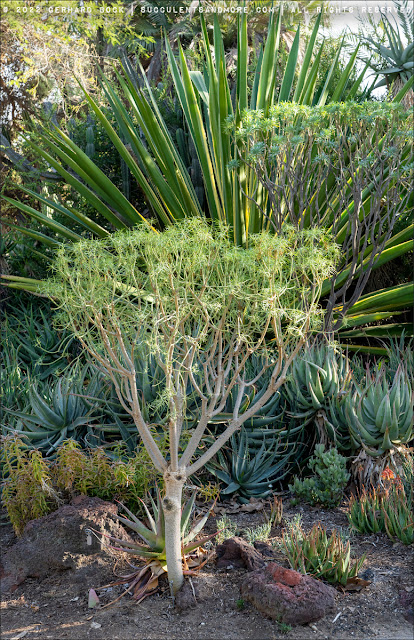



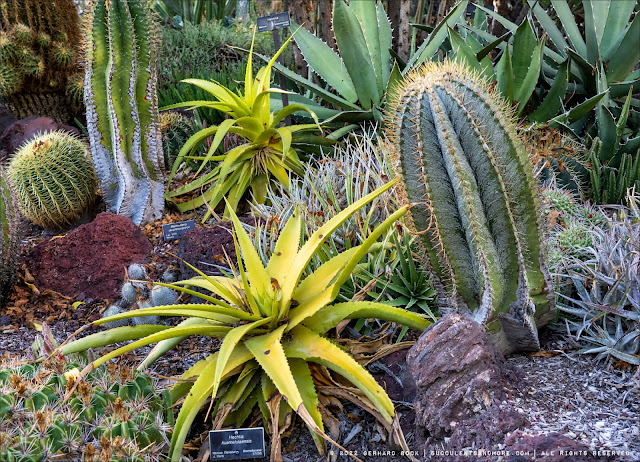

















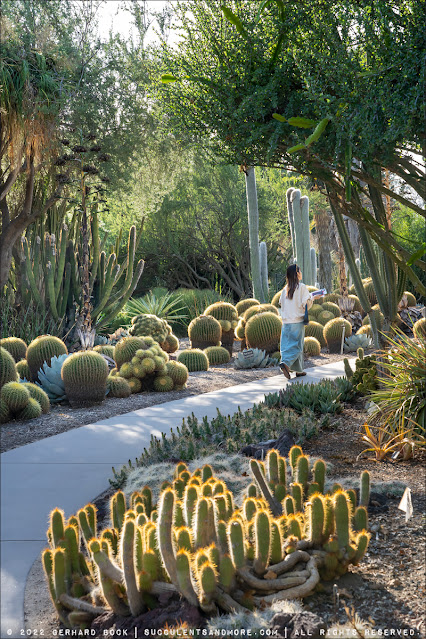


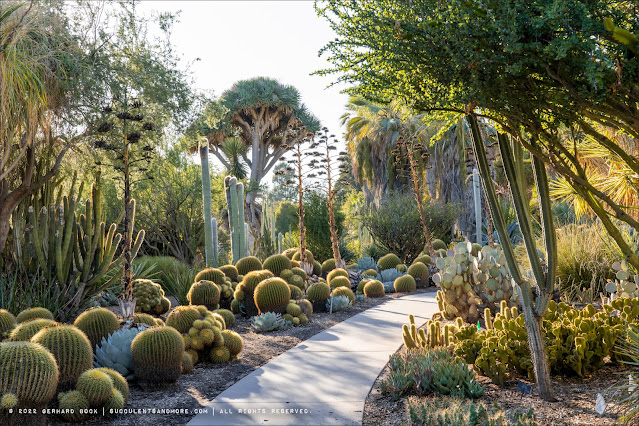
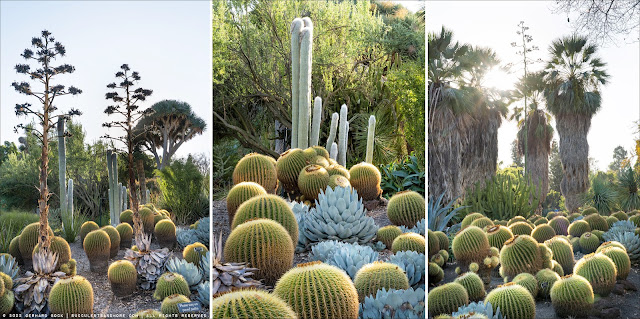


It's always a good day to soak up Huntington Desert Garden photos! So how is the new entrance to the desert garden looking? (that's how I think of the space that was under construction when I was there last November)
ReplyDeleteThey've made visible progress on the Desert Garden renovation. The Conservatory has completely new sheathing, but many trails in the upper garden are still closed. I expect they'll reopen next year--but then, I thought the same thing a year ago.
DeleteI've never been there in the late afternoon either. The lighting in your photos was great. I've never been particularly fond of barrel cactus but I admit it looks fabulous planted en masse.
ReplyDeleteYes, barrel cacti planted en masse are hard to beat for visual impact. Especially when there are no weeds. The volunteers at the Huntington do an amazing job keeping the gardens look pristine.
DeleteMiss the place--need to get back there. That 'Hercules' sure has grown last I visited!
ReplyDeleteLet's have a reunion there after the renovation is complete!
DeleteI never tire of seeing photos of the Huntington garden. I particularly love the photos of the meandering paths through the New World section, Desert garden and Palm garden. The Cascalote trunk is unusually attractive and bone chilling, all at the same time.
ReplyDeletechavli
I collected some cascalote seeds on a trip years ago. I wonder if they're still viable? I'd love to have a smaller specimen in a pot!
DeleteThe barrel cacti with the blue agave is a stunning combination. This garden is on my bucket list.
ReplyDelete